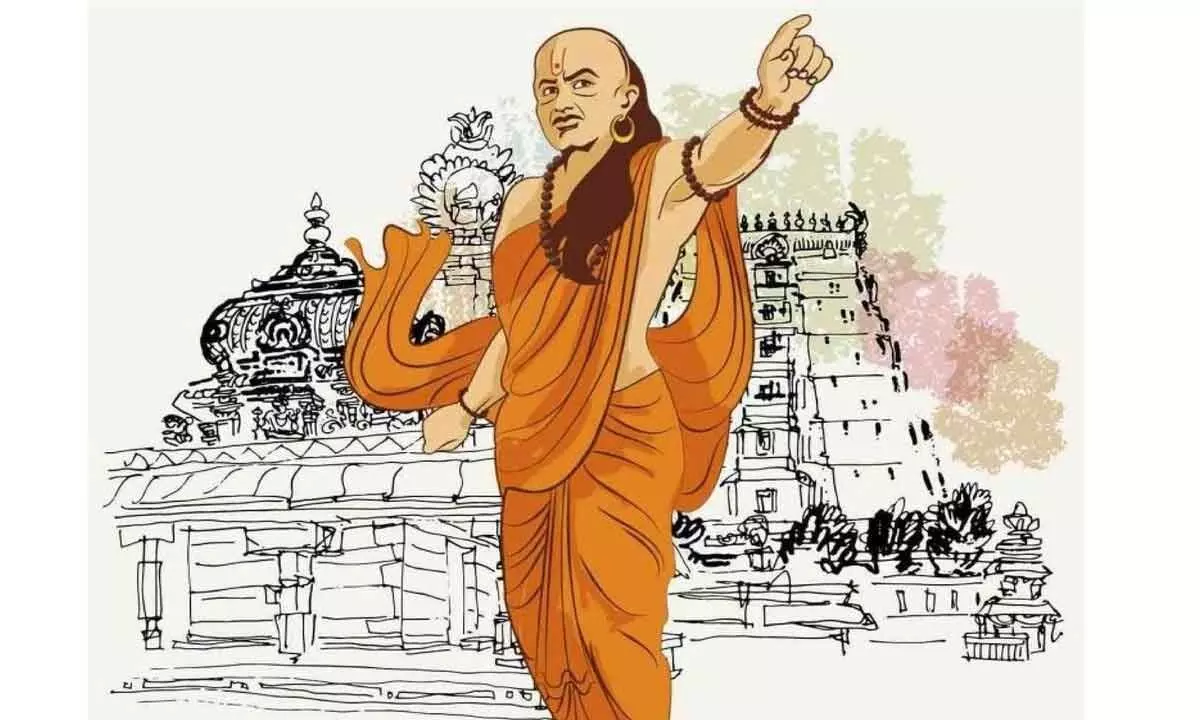Marx imitated Chanakya's vision of equality to produce Maoist culture
Chanakya's notion of equality included social justice, opportunity and fair distribution of resources
image for illustrative purpose

Marx focused primarily on economic inequality and class struggle, Chanakya recognized the multidimensional nature of inequality and advocated for a more holistic approach to addressing societal disparities
Vishnugupta, also known as Kautilya or Chanakya, a towering figure in ancient Indian history, is renowned for his multifaceted roles as an economist, teacher, philosopher, and political advisor. Born in the 4th century BC, Chanakya's vision extended far beyond his time. Headvocated a society founded on the principles of equality, justice and honesty. His contributions to political thought and governance remain highly influential even in modern times. Central to Chanakya's ideology was the belief in creating a society where all individuals would have equal opportunities and rights. He envisioned a state where the king served as a mere custodian, entrusted with the responsibility of upholding the welfare of the people rather than exerting absolute power.
For Chanakya, equality was not just a lofty ideal but a practical necessity for the harmonious functioning of society. Honesty, integrity, and dedication to the state were paramount virtues in Chanakya's worldview. He emphasized the importance of every individual contributing honestly towards the betterment of the state, regardless of their station in life.
An illustrative anecdote often recounted about Chanakya exemplifies his commitment to these values. When a traveller sought an audience with him, Chanakya extinguished the lamp fuelled by state funds, symbolizing his adherence to transparency and fiscal responsibility. By lighting the lamp with his personal resources, he demonstrated his unwavering dedication to the principles he espoused. At the heart of Chanakya's teachings lies the concept of equality, which he viewed as essential for nation-building and collective prosperity. Unlike modern interpretations that focus solely on economic equality, Chanakya's notion of equality encompassed a broader spectrum, including social justice, opportunity, and fair distribution of resources. He believed that a society could only thrive when every individual had equal access to opportunities and resources, regardless of their background or social status.
Chanakya's advocacy for equality was deeply intertwined with his vision of a strong and prosperous nation. He recognized that a society plagued by inequality and injustice would be inherently unstable, breeding resentment and discord among its citizens. Therefore, he emphasized the importance of creating a just and equitable system that ensured the welfare of all members, fostering unity and solidarity among the populace. Furthermore, his understanding of equality extended beyond mere material wealth. He emphasized the importance of moral and ethical values in shaping a harmonious society, where individuals respected each other's rights and upheld the principles of justice and righteousness. In his seminal work, the Arthashastra, he outlined detailed guidelines for governance that prioritized the welfare of the people and promoted social cohesion through equitable policies and institutions.
In contrast, the concept of communism espoused by Karl Marx, which later evolved into various forms such as Maoism, took a different approach to achieving equality. While Marx envisioned a classless society where the means of production were owned collectively, Maoism, influenced by Mao Zedong, adapted these ideas to the specific context of China, emphasizing agrarian reform and revolutionary struggle. However, despite their shared goal of achieving equality, the implementations of Marxist ideologies often diverged from Chanakya's principles of governance. Marxist regimes, including Maoist China, have been criticized for their authoritarian tendencies, suppression of dissent, and disregard for individual rights—all of which stand in stark contrast to Chanakya's emphasis on ethical governance and the empowerment of the people.
Moreover, while Marx focused primarily on economic inequality and class struggle, Chanakya recognized the multidimensional nature of inequality and advocated for a more holistic approach to addressing societal disparities. In the annals of history, there exists a curious paradox observed among some renowned leaders of Marxism. These figures, often revered for their unwavering commitment to social change and equality, demonstrate a striking duality in their personal lives. While they prioritize the well-being and education of their own children, ensuring they attend prestigious institutions and enjoy a comfortable lifestyle, they simultaneously advocate for others to sacrifice these very privileges in the pursuit of armed revolution.
This phenomenon raises profound questions about the ethics and authenticity of revolutionary leadership. How can one espouse ideals of equality and sacrifice while seemingly enjoying the benefits of privilege and security for their own kin? Alternatively, Chanakya's conception of equality extends beyond mere economic redistribution, embracing broader concepts of justice, opportunity, and ethical governance.
His teachings retain relevance in contemporary times, furnishing invaluable perspectives on the foundations of nation-building and principles of justice essential for well-being. While Marxist doctrines such as communism have endeavoured to combat inequality through revolutionary avenues, Chanakya's heritage serves as a poignant reminder of the enduring significance of ethical governance, societal unity, and the empowerment of individuals in fostering genuine equity within society.
(The writer is a scientist and social worker)

